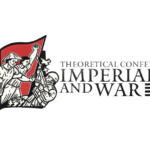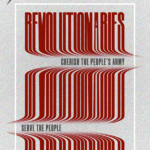Revolutionary lawyers raise the bar

All rise!
Everyone rose to the occasion. Although it was far from a courtroom scene, lawyers, law students, and paralegals, true to the nature of their profession, intently and intensely deliberated on the draft constitution of the underground revolutionary organization Lupon ng mga Manananggol ng Bayan or LUMABAN (literally, to fight or to struggle). They hammered out the plan of action to continuously strengthen the organization and to effectively arouse, organize, and mobilize the sector behind the national democratic revolution.
It was LUMABAN’s first congress, which Ka Joben, in his written welcome address, described as having been a long journey.
“We have come a long way, a lot of things have happened in the interim and a great many sacrifices have been waged. With inspiring tactical legal victories and cumulative strategic battles over time and hard and painful lessons as well, it is with heartfelt joy that we have finally gathered here as one united in profession, commitment and vision on a higher level,” Ka Joben said.
Acknowledging the contributions of those who had been directly involved in long process but could no longer be present at the first congress, he explained:
“The deaths from fascist hands of some, or from illness or old age of others, and the peculiar demands of our profession have impacted on the formalization of our anti-fascist and anti-imperialist organization. Many of those involved in the process are either still in the hands of the enemy or have taken on new tasks of equal importance.”
Composed of representatives from eight regions and two major sectors, the two-day founding congress was a mix of young and seasoned lawyers and paralegals. Notably, young lawyers and paralegals constituted almost half of the delegates.
Defending the people’s interests
“All of us in the National Democratic Front of the Philippines rejoice in this major act of consolidation of LUMABAN,” said Luis Jalandoni, leading member of the NDFP National Executive Council, in a video message. LUMABAN has been affiliated with the NDFP since its inception.
Jalandoni recognized LUMABAN’s support to the revolutionary armed struggle and its contributions to the NDFP’s endeavors to ensure the victory of the national democratic revolution. “It ensures that the revolution in the sector is part of the revolutionary movement and program for the establishment of the people’s democratic government,” he said.
His message corroborated Ka Joven’s point that members of the legal profession can use their skills and experience to provide a “counterview of the reactionary justice system to craft, develop, enrich, collate and further implement an alternative revolutionary legal and justice system.”
LUMABAN’s congress statement acknowledged the role of lawyers in the anti-imperialist, anti-feudal, and anti-fascist struggle dating back to the Spanish and American colonial regimes.
It cited lawyer and revolutionary leader Apolinario Mabini, known as the “Brain of the Revolution,” who fought against the Spanish and American colonial rules; Epifanio delos Santos, associate editor of La Independencia, a major newspaper during the Philippine Revolution; Natividad Almeda-Lopez, the first female lawyer in the country, who was also one of the first advocates for women’s rights in the country; and, Claro M. Recto, who espoused political and economic sovereignty and fought US neocolonialism. In recent history, lawyers such as Lorenzo “Ka Tanny” Tañada, Jose “Ka Pepe” Diokno, and Romeo T. Capulong were at the forefront of the people’s struggle against the US-Marcos dictatorship.
Indictment of the US-Marcos Jr regime
NDFP Negotiating Panel interim chairperson Julieta de Lima called on members of LUMABAN to “join the entire Filipino people in struggling against the US-Marcos II dictatorship”, which she described as the “partnership of the most corrupt and most brutal political dynasties for perpetuating the reign of greed and terror in our country.”
Concurrent with this, LUMABAN’s three-year program of action calls on the Filipino people to “expose, fight, isolate and overthrow the US-Marcos regime.” Furthermore, it cited the crisis of the semicolonial and semifeudal system as the root of the chronic socio-economic crisis in the country that, for decades, has victimized the Filipino people especially the poor.
Agreeing with that observation, De Lima affirmed the efforts of LUMABAN members to be an “effective force” in the masses’ fight against imperialism, feudalism, and bureaucrat capitalism, and in advancing the national democratic revolution by defending the Filipino people against the “state of the semicolonial and semifeudal system that we seek to replace with a just, patriotic, democratic and prosperous system.”
No objection
By unanimous vote, delegates to the founding congress elected the first officers of LUMABAN.
Elected chairperson was Rosa Kinabukasan. In an interview with Liberation, Kinabukasan acknowledged that establishing an underground organization of lawyers was not an easy task, citing the “inherent weakness of the legal profession—being magnet for all things bourgeois.” From law school, stated the congress statement, “We were introduced to laws of bourgeois origin, to the universal concept of rights and to the misguided idea and ideals of justice.”
Honoring their martyred comrades for defending the rights of the masses, and condemning how the State controls the legal system to serve the interests of the ruling classes, the revolutionary lawyers vowed to remold themselves by rejecting the bourgeois viewpoint and legal training. They pledged to be with the masses in the fight to end the systemic oppression and exploitation.
To paraphrase LUMABAN’s congress statement, the lawyers will not flinch, they will not falter. Whenever called, as revolutionary lawyers they will rise and fight because it is just and necessary. ### (Priscilla Guzman)



